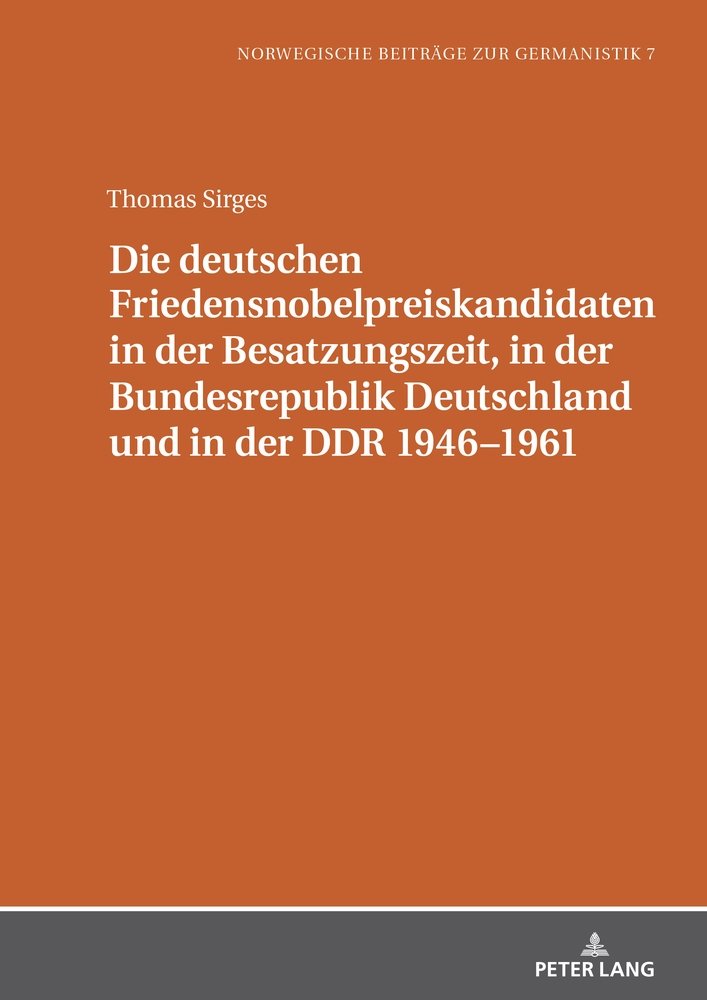Der Neuanfang war mühsam. Zunächst einmal beherrschte eine kleine Gruppe prominenter Pazifisten aus der Weimarer Republik das deutsche Bewerberfeld für den Friedensnobelpreis nach 1945. Erst im Laufe der 1950er Jahre traten Kandidaten auf, deren Wirken sich mit dem politischen Neuanfang verband. Jedoch kehrten nicht alle exilierten Kandidaten auch nach Deutschland zurück. Durch die jüngsten militärischen Ereignisse in Europa hat dieser Band im Verlaufe seiner Entstehung unerwartet an Aktualität gewonnen. So sehr sich auf der einen Seite die Friedensideen und -konzepte sowie die praktische Friedensarbeit der Kandidaten voneinander unterschieden, so sehr einte die Generation, die zwei Weltkriege erlebt hatte, auf der anderen Seite der feste Wille, einen dritten, wohlmöglich atomaren Weltkrieg zu verhindern.
Vom selben Autor sind bereits die Bände Die deutschen Friedensnobelpreiskandidaten im Kaiserreich 1901-1918 (2017), Die deutschen Friedensnobelpreiskandidaten in der Weimarer Republik 1919-1933 (2020) und Die deutschen Friedensnobelpreiskandidaten in der Zeit des Nationalsozialismus 1934-1945 (2021) erschienen.


